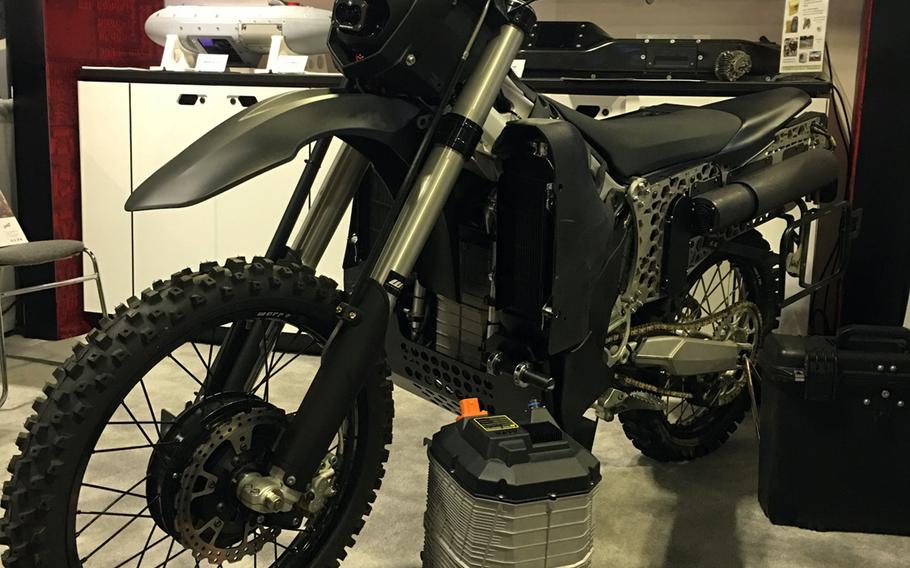
Logos Technologies is developing an electric dirt bike known as the SilentHawk for the Defense Advanced Research Projects Agency. (Logos Technologies)
Ultra-quiet, electric motorcycles designed to help fighters sneak up on the enemy are getting closer to the battlefield, according to a company building prototypes for the Defense Advanced Research Projects Agency.
Logos Technologies, which has been developing a hybrid-electric dirt bike known as the SilentHawk since 2015, is now working on an all-electric motorcycle as well as another multifuel hybrid with a lighter, air-cooled engine.
“The idea is to have two test motorcycles,” Doug Rombough, Logos’ vice president of business development, said in a phone interview recently.
Both will be able to carry equipment and use front-wheel drive, he said.
Alex Dzwill, lead engineer for the SilentHawk, said the drive system makes it easier to start the motorcycle on a steep hill, which can be difficult on an ordinary dirt bike.
The system also provides better traction in deserts and on beaches, he said.
“On a typical dirt bike you would use a ton of power trying to move in sand,” Dzwill said. “With the front-wheel drive you can climb out of it without using too much power.”
The $15,000 recreational dirt bike, made by California’s Alta Motors, that the SilentHawk is based on weighs 267 pounds. Dzwill said he expects the added features to add another 20-30 pounds.
The all-electric bike will have a range of 40-50 miles across off-road terrain. The hybrid, with a multi-fuel generator added, will be able to travel 170 miles, he said.
The hybrid’s range extender will be easy to add or remove, and also would be able to power troops’ electronic gear in the field, he said.
“Soldiers could be sitting on a hill and top up the battery with the generator and charge up other gear,” Romobough said.
“They are carrying more and more equipment that has to be powered so it’s a great benefit.”
Logos will have a year to develop the motorcycles but there’s already interest from the Army, Marine Corps and foreign militaries, he said.
“We think this is going to be a pretty impressive motorcycle when it’s done,” he said.
Technology expert and Arizona State engineering professor Braden Allenby said in an email that the military would be cautious about a new technology with significant operational implications. The Pentagon will want to thoroughly vet any decision to field electric vehicles in combat, he said.
“If the military decides to adopt all-electric vehicles, it will be because that technology has been assessed to provide better mission performance, at least under some conditions,” he said.
robson.seth@stripes.com Twitter: @SethRobson1